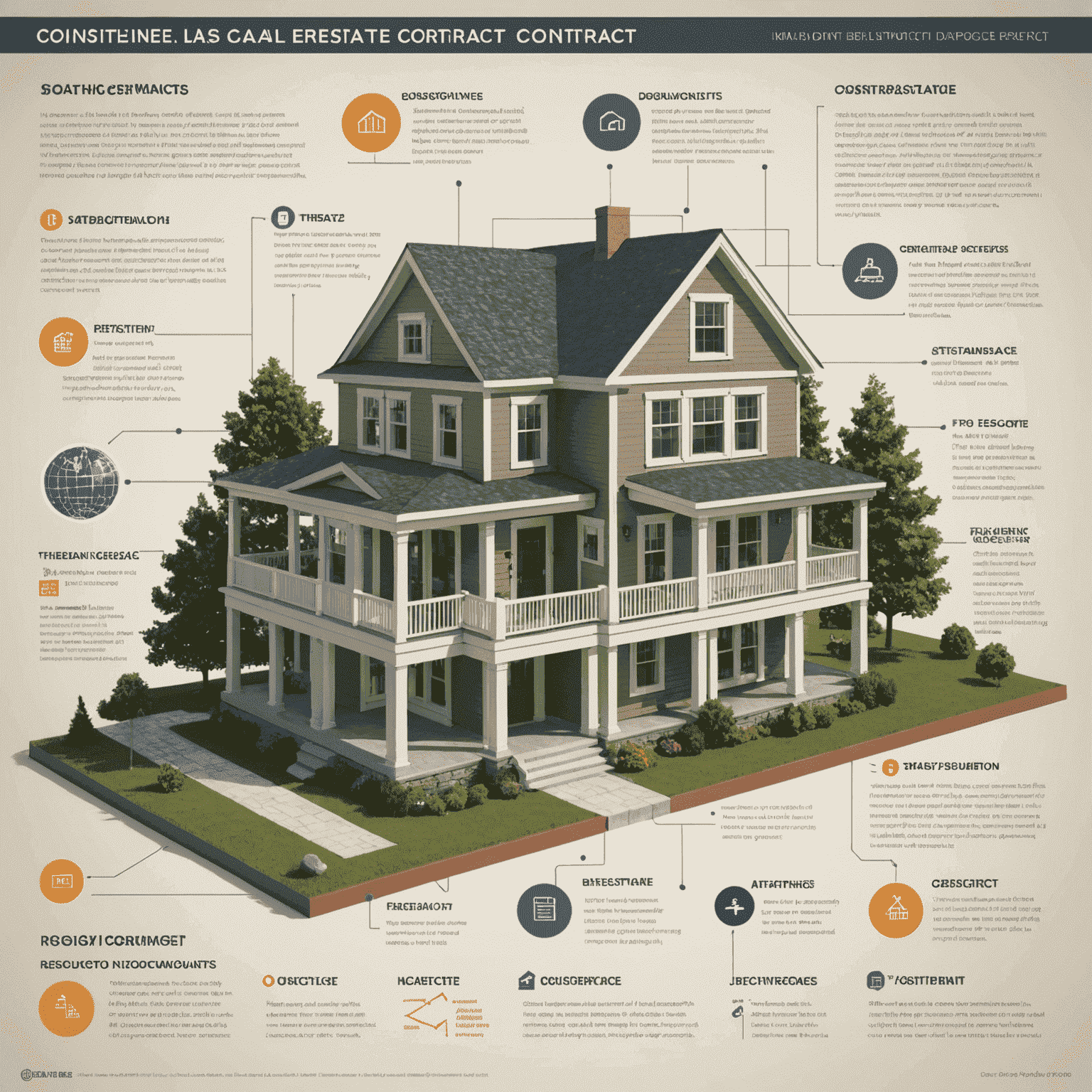Understanding Real Estate Contracts

Real estate contracts are complex legal documents that play a crucial role in property transactions. As legal professionals specializing in real estate law, we've created this comprehensive guide to help you navigate the key elements of these contracts and identify potential pitfalls before signing.
Essential Components of Real Estate Contracts
1. Property Description
A detailed description of the property, including its address, boundaries, and any included fixtures or appliances. This section should leave no room for ambiguity about what is being bought or sold.
2. Purchase Price and Financing Terms
The agreed-upon price for the property and how it will be paid. This includes details about down payments, mortgage arrangements, and any contingencies related to financing.
3. Closing Date and Possession
The expected date of the transaction's completion and when the buyer will take possession of the property. Be aware of any rent-back agreements or delayed possession clauses.
4. Contingencies
Conditions that must be met for the contract to be binding, such as satisfactory home inspections, appraisals, or the buyer's ability to sell their current home.

5. Disclosures
Legal requirements for sellers to disclose known issues with the property, such as structural problems, pest infestations, or environmental hazards.
6. Earnest Money Details
Information about the good faith deposit, including the amount, where it will be held, and conditions for its return or forfeiture.
What to Watch Out For
- Vague Language: Ensure all terms are clearly defined to avoid misinterpretations.
- Unrealistic Deadlines: Be wary of timelines that may be difficult to meet, especially for contingencies.
- Hidden Costs: Look for any mentions of additional fees or charges that weren't discussed during negotiations.
- Unfair Clauses: Be cautious of terms that heavily favor one party over the other.
- Incomplete Information: Make sure all agreed-upon terms are included in the written contract.
The Importance of Legal Consultation
Given the complexity and binding nature of real estate contracts, it's crucial to seek professional legal advice before signing. An experienced real estate attorney can:
- Review the contract for potential issues or unfavorable terms
- Explain the legal implications of each clause
- Negotiate better terms on your behalf
- Ensure all necessary disclosures are present
- Protect your rights and interests throughout the transaction

Remember, a real estate contract is more than just a formality—it's a legally binding document that can have significant long-term consequences. By understanding its key elements and seeking professional legal assistance, you can ensure that your real estate transaction proceeds smoothly and protects your interests.
This guide is intended for informational purposes only and should not be considered as legal advice. For personalized assistance with your real estate contract, please consult with a qualified attorney.